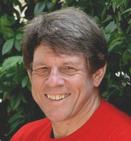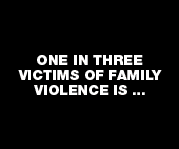The Importance of Dads
 Tuesday, January 19, 2010 at 10:30AM
Tuesday, January 19, 2010 at 10:30AM 
- Dr Bruce Robinson and
- Sue Price.
We commence the show with a hard look at some of the ludicrous anti male stories doing the rounds of the news desks this week. The fact that these blatant gender discriminatory activities are tolerated at all in our so- called enlightened society, should give great cause for alarm. The obvious psychological harm done to children growing up in the midst of a manufactured male versus female gender war, can be readily observed in the violent and disrespectful behaviour of many of todays youth.
Our first guest is author Dr Bruce Robinson whose books ‘Fathering from the Fast Lane’ and ‘Daughters and their Dads’ provide a wealth of parenting information for dads. Dr Robinson joins us to discuss the importance of a dad’s involvement in his children’s lives and the need to share their everyday experiences. Dr Robinson is also a Professor of medicine and a consultant Lung Specialist at the University of Western Australia unit at Sir Charles Gairdner Hospital.
Our second guest is Sue Price of the Mens Rights Agency, regarded by many as the doyen of the fatherhood movement in Australia. The most articulate and outspoken supporter of the rights of men to be treated equally and fairly in our society, Sue speaks about the latest campaigns to raise community awareness and how to alert your elected members to the current societal persecution of men.
‘Fathering from the Fast Lane’ became a national bestseller within two months and has featured on numerous TV and radio presentations as well as newspaper and magazine article. Dr Robinson explains why his book became a best seller this way:
“When I started this book I wrote some text and included my own experiences and ideas but it sounded a bit one-dimensional. After all, I was only one man, with one particular personality and experience of life. I had only one father and have only three children, each with their own unique personality. These were not sufficiently representative of a broader range of fathers. To avoid this problem I decided to look at statistics on fathering – as a medical scientist, statistics are second nature to me. But useful as they are, they are quite dry, and lack the personal element that we all need to be able to relate to the issues.
Also, I noticed a lot of inaccuracy or even bias in much of the statistical work, meaning that some of the data was of uncertain value. I tried including a few things that I remembered hearing from other dads that I knew, from friends, from patients or public figures, but that was also limited because it relied on my memory of what they said and was also only my interpretation of those experiences.
Realizing that I needed a far broader range of more personal experience if the book was going to be really useful, I decided to interview a wide range of busy, successful men from different walks of life. Overall, from all of these interviews there were many things that were common but there were always lots of individual stories from each dad and gems of ideas that I couldn’t wait to get down on paper. I found them helpful, and I hope you do, too.
When I started to write this book I took the view that most busy fathers fail in their job as fathers, so this would be a ‘collection of confessions’. Instead, every person I spoke to had lots of good ideas. They spoke frankly about their fathering and the mistakes they had made. They described to me a lot of joy and a lot of heartaches. None felt as though they deserved a gold medal for their fathering. I have no doubt that the ideas and experiences I have included in this book will be helpful to other dads who are still on the journey of fathering at the present time or who plan to start in the future.
Some of the most valuable bits of advice are those that start with the phrase, ‘If I had my time as a dad all over again, I would … ’ Based on the ideas, experiences and mistakes shared in the interviews, I present to you a number of ideas and strategies for young dads. The goal is to increase the chances that our children will live happy and healthy lives and, when they sit around in middle age listening to others talk about how bad or good their fathers were, our children will say ‘my dad was a great dad’.

